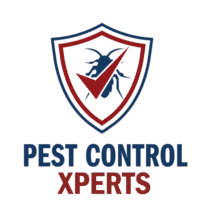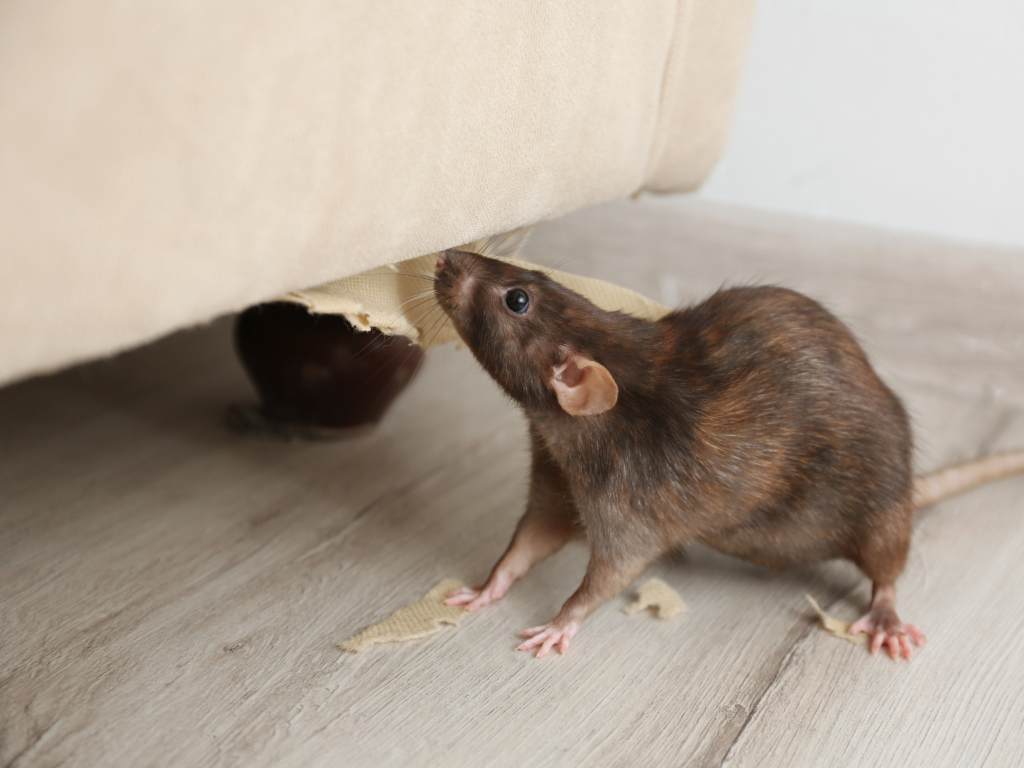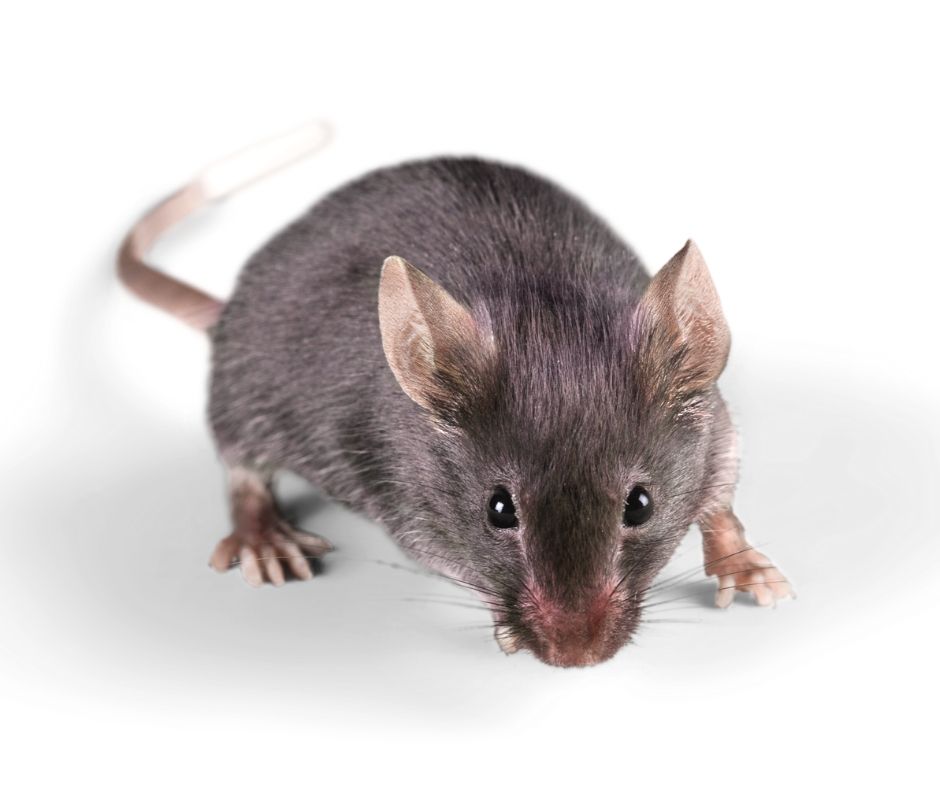Rodent Removal Services by Pest Control Xperts in Pleasanton
Serving homes, apartments, dormitories, hotels, and healthcare offices throughout Pleasanton, California, and Surrounding Areas
Pleasanton Rodent Control & Extermination: Reclaim Your Home From Hidden Colonies
The unsettling scurry in the walls, the gnawed food packaging, the droppings in your pantry—these aren’t just minor nuisances. They are the tell-tale signs of a deeper, more insidious problem: a thriving rodent colony hidden within the very fabric of your Pleasanton home. Many property owners attempt DIY solutions, armed with traps and sprays, only to find the problem persists, an illusion undone by the unseen activity of the main nest. At Pleasanton Pest Control Experts, we understand that true rodent elimination goes beyond surface-level fixes. Our mission is to eradicate the problem at its source, targeting the queen and nest to deliver definitive, lasting relief.
Why Rodents Appear in Pleasanton and Surrounding Communities
Pleasanton, nestled in the heart of the Sacramento Valley, presents a unique and often challenging environment for rodent control. Our local climate, geography, and urban development patterns create ideal conditions for various rodent species to thrive and seek refuge in homes and businesses. Understanding these factors is the first step toward effective prevention and elimination.
The Sacramento Valley’s distinct climate, characterized by hot, dry summers and cold, foggy winters, profoundly influences rodent behavior. During the scorching summer months, as temperatures soar and natural water sources evaporate, rodents are driven indoors in search of moisture and cooler, more stable environments. This seasonal migration often leads to increased activity in residential and commercial properties, as they seek refuge from the harsh outdoor conditions. Conversely, the cold, foggy winters push rodents indoors in pursuit of warmth and insulation, making your home a prime target for overwintering colonies. This cyclical pattern means that rodent pressure is a year-round concern in Pleasanton, with peak activity shifting between seasons.
The Feather River floodplain dynamics, a significant geographical feature of our region, also play a crucial role. The periodic flooding and high-moisture pockets created by the river and its tributaries provide fertile breeding grounds and abundant food sources for many rodent species. As water levels fluctuate, these populations are often displaced, seeking higher, drier ground—which frequently means your property. Local agricultural irrigation systems further contribute to these high-moisture environments, inadvertently supporting rodent populations that then migrate into urban areas. For instance, species like carpenter rodents, which thrive in damp wood, find ideal conditions in these irrigated areas and can then easily transition to infesting homes with moisture issues.
Adding another layer of complexity, the Sutter Buttes, often referred to as the “world’s smallest mountain range,” serve as a natural refuge zone for various wildlife, including rodents. While seemingly distant, these natural habitats can act as reservoirs, with rodent populations occasionally expanding into surrounding developed areas, particularly during periods of environmental stress or population booms.
Architectural and urban factors in Pleasanton further exacerbate rodent vulnerabilities. New tract housing developments, while modern, can sometimes have subtle construction gaps or utility entry points that are overlooked, providing easy access for smaller rodent species. Older homes in the historic center, on the other hand, often present a different set of challenges. Their aging foundations, less robust sealing, and intricate pipework can offer numerous hidden entry points and extensive harborage areas. These older structures are particularly susceptible to species like odorous house rodents and pharaoh rodents, which can exploit even the smallest cracks and crevices to establish vast, interconnected colonies.
The constant movement of goods and people within our city also contributes to the spread of pervasive rodents. Commercial trucks, for example, frequently transport goods from various locations, inadvertently carrying hitchhiking rodents that can then establish new infestations upon arrival. This constant influx means that even the most meticulously maintained properties can become targets, highlighting the need for vigilance and professional intervention.
In summary, Pleasanton’s unique blend of climate, geography, and urban development creates a complex environment where rodents are a persistent threat. From the seasonal migrations driven by extreme temperatures to the structural vulnerabilities of our diverse housing stock and the incidental transport of pests, a multi-faceted approach is essential for effective rodent control. Understanding these local dynamics is at the core of our strategy at Pleasanton Pest Control Experts, allowing us to implement targeted and effective solutions that truly address the root cause of your rodent problem.
Understanding the Enemy: Local Rodent Species and Their Unique Threats
To effectively combat a rodent infestation, it is crucial to understand the specific species you are dealing with. Pleasanton is home to several common rodent species, each with distinct behaviors and the potential to cause significant damage and health risks.
- Carpenter Rodents: These are not to be confused with termites, though both cause wood damage. Carpenter rodents excavate tunnels in wood to build their nests, but they do not eat the wood. They prefer damp or decaying wood, making areas with moisture problems, such as leaky pipes, roofs, or poorly ventilated crawl spaces, prime targets. Signs of carpenter rodents include piles of wood shavings (frass) that resemble sawdust, often mixed with insect body parts, and faint rustling sounds within walls or wooden structures. Their damage can compromise the structural integrity of your home over time.
- Pavement Rodents: Small, dark brown to black rodents that typically nest outdoors under rocks, pavement, or in cracks in concrete. They are opportunistic foragers and will readily enter homes in search of food and water, especially during hot or dry periods. You’ll often see pavement rodents trailing in lines along sidewalks, driveways, and foundations. Inside, they are attracted to sugary foods and can contaminate pantries.
- Odorous House Rodents: Named for the distinctive, rotten coconut-like odor they emit when crushed, these small, dark brown to black rodents are a common nuisance. They establish large colonies with multiple queens and can quickly spread throughout a home, nesting in walls, floors, and even insulation. Odorous house rodents are highly adaptable and will forage for a wide variety of foods, making them a persistent problem in kitchens and food storage areas.
- Pharaoh Rodents: These tiny, yellowish-brown rodents are particularly problematic due to their ability to “bud” or split off into new colonies when disturbed or when their nest becomes too large. This makes DIY treatments, which often scatter the colony, highly ineffective. Pharaoh rodents are a significant concern in hospitals and food processing facilities due to their ability to spread pathogens. In homes, they are attracted to sweets, greases, and proteins, and can infest virtually any area.
- Fire Rodents: While less common indoors, fire rodents are an aggressive species known for their painful stings. They build large mounds, typically outdoors in sunny, open areas. If their mounds are disturbed, they will swarm and sting, posing a significant health risk, especially to children and pets. Their presence near a home can indicate a potential for them to forage inside if food sources are available.
- Argentine Rodents: These invasive rodents form supercolonies that can span vast areas, making them incredibly difficult to control. They are highly competitive and will displace native rodent species. Argentine rodents are attracted to sweet foods and can be found trailing in large numbers, often entering homes through small cracks and crevices in foundations and walls.
- Thief Rodents: These tiny, fast-moving rodents are known for “stealing” food from other rodent colonies, hence their name. They are one of the smallest rodent species and can enter homes through incredibly tiny openings. Thief rodents are omnivores and can infest food products, making them a concern for food safety.
Problems Rodents Create for Homes and Businesses
An unchecked rodent infestation can lead to a cascade of negative consequences, impacting not only your property but also your health and peace of mind.
- Food Contamination: Rodents are notorious for contaminating food sources. They forage in pantries, kitchens, and food storage areas, leaving behind droppings, urine, and saliva. This not only renders food inedible but can also spread bacteria and pathogens, posing serious health risks to occupants.
- Property Damage: Many rodent species, particularly carpenter rodents, can cause significant structural damage. Their tunneling activities weaken wooden beams, floors, and walls, potentially compromising the integrity of your home. Other rodents may chew through electrical wiring, leading to fire hazards, or damage insulation, reducing energy efficiency.
- Brand Reputation Risk: For businesses, a rodent infestation can be catastrophic. The presence of rodents can quickly tarnish a brand’s reputation, leading to negative reviews, loss of customer trust, and even regulatory fines. This is especially true for restaurants, food service establishments, and healthcare facilities.
- Health Risks: Rodents are vectors for numerous diseases, including salmonellosis, E. coli, and other bacterial infections. Their droppings and urine can trigger allergies and asthma, particularly in sensitive individuals. Rodent bites, while rare, can also transmit diseases.
- Satellite Colonies and Budding: Some rodent species, like pharaoh rodents, exhibit a behavior called “budding,” where a colony splits into smaller, independent satellite colonies when threatened or overcrowded. This makes traditional pest control methods ineffective and can quickly escalate a localized problem into a widespread infestation.
Signs of an Escalating Rodent Infestation: When to Call the Experts
Recognizing the early signs of a rodent problem can prevent a minor nuisance from becoming a full-blown infestation. If you observe any of the following, it’s time to contact Pleasanton Pest Control Experts:
- Visible Rodent Trails: Many rodent species follow established paths, creating visible “rodent trails” in your home. These are often dark, greasy marks along baseboards, walls, or pipes, caused by the oils and dirt on their bodies.
- Frass: For carpenter rodents, the presence of frass—fine sawdust-like material, often mixed with insect body parts—is a clear indicator of their activity. You might find this near wooden structures, window sills, or doorframes.
- Rodent Nests: Rodents build nests in secluded, dark, and often damp areas. These nests can be found in wall voids, attics, crawl spaces, under sinks, or behind appliances. They are typically made from chewed-up paper, fabric, or insulation.
- Rodent Mounds: For species like fire rodents, visible mounds of soil or dirt in your yard are a strong indication of their presence. These mounds are often dome-shaped and can be quite large.
- Increased Rodent Sightings: While a single rodent might be an isolated incident, frequent sightings, especially during the day, suggest a large and established colony.
- Persistent Rustling or Scratching Sounds: Sounds coming from walls, ceilings, or floors, particularly at night, can indicate rodent activity. These sounds are often associated with their foraging, nesting, or tunneling.
- Damaged Property: Gnaw marks on furniture, wires, wooden structures, or food packaging are undeniable signs of a rodent presence.
- Unusual Odors: A musty or sweet odor can indicate a rodent infestation, often due to their pheromones or the accumulation of their waste.
Why Professional Extermination is Essential for Rodent Removal
The allure of store-bought sprays and traps is understandable, offering a seemingly quick and inexpensive fix. However, these DIY methods often provide only temporary relief, creating illusions undone by the hidden, resilient nature of rodent colonies. Here’s why professional extermination by Pleasanton Pest Control Experts is the only definitive solution:
- Hidden Colonies: Rodent colonies are almost always larger and more complex than what is visible on the surface. Store-bought products rarely reach the core of the problem—the queen and the main nest. Our experts are trained to identify and access these hidden harborage areas, ensuring complete eradication.
- Species Identification: Different rodent species require different treatment protocols. A generic spray or trap may be ineffective against a specific species, potentially scattering the colony and making the problem worse, as seen with pharaoh rodents. Our professionals accurately identify the species and tailor a targeted treatment plan.
- Integrated Pest Management (IPM): We employ an IPM approach, which is a comprehensive strategy that goes beyond simply killing visible rodents. IPM focuses on long-term prevention, using a combination of inspection, identification, treatment, and exclusion techniques to manage rodent populations sustainably.
- Safety and Effectiveness: Professional-grade products and application techniques are far more potent and effective than anything available to the public. Our technicians are trained in the safe and precise application of these treatments, minimizing risks to your family and pets while maximizing efficacy.
- Exclusion and Prevention: A key component of professional rodent control is exclusion—sealing entry points to prevent future infestations. DIY methods rarely address this critical aspect, leaving your home vulnerable to re-infestation. We identify and seal potential entry points, creating a robust perimeter defense.
- Understanding Rodent Behavior: Our experts possess deep knowledge of rodent biology and behavior, including their foraging patterns, nesting habits, and reproductive cycles. This understanding allows us to anticipate their movements and implement strategies that disrupt their entire life cycle.
Advanced Rodent Exclusion Methods and Structural Pest Control
Effective rodent control extends beyond eradication; it encompasses robust exclusion methods and comprehensive structural pest control to prevent future infestations. At Pleasanton Pest Control Experts, we focus on making your home an impenetrable fortress against rodents.
- Sealing Entry Points: Our technicians conduct thorough inspections to identify and seal all potential entry points, no matter how small. This includes cracks in foundations, gaps around utility pipes, vents, windows, and doors. We use durable, rodent-proof materials to ensure these openings are permanently closed.
- Moisture Management: Many rodent species, particularly carpenter rodents, are attracted to moisture. We provide recommendations and solutions for managing moisture issues in and around your home, such as repairing leaky pipes, improving drainage, and ensuring proper ventilation in crawl spaces and attics. Reducing moisture makes your property less attractive to these pests.
- Perimeter Defense: We establish a strong perimeter defense around your property using a combination of baiting systems, barriers, and strategic treatments. This creates a protective zone that deters rodents from approaching and entering your home.
- Crack and Crevice Treatment: Rodents often hide and travel within cracks and crevices in walls, floors, and foundations. Our targeted treatments penetrate these hidden areas, eliminating any lingering pests and preventing them from establishing new harborage.
- Rodent Barriers: For persistent problems, we can install physical rodent barriers in vulnerable areas, such as around pipes, vents, and foundation gaps, to provide an additional layer of protection.
- Integrated Pest Management (IPM) for Structures: Our structural pest control approach is rooted in IPM principles. This means we not only treat existing problems but also focus on modifying the environment to make it less hospitable to rodents in the long term. This includes advising on landscaping, waste management, and storage practices.
Our Rodent Removal Method: A Step-by-Step IPM Approach
At Pleasanton Pest Control Experts, we utilize a proven, systematic Integrated Pest Management (IPM) approach to ensure complete and lasting rodent removal. Our method is designed to be thorough, effective, and tailored to the unique needs of your property.
- Consultation & Inspection: Our process begins with a detailed consultation to understand your concerns and a comprehensive inspection of your property. Our trained technicians will meticulously examine both the interior and exterior of your home or business, identifying rodent species, locating harborage areas, entry points, rodent trails, and assessing the extent of the infestation. This critical step allows us to develop a precise and customized treatment plan.
- Customized Treatment: Based on our inspection findings, we implement a targeted treatment strategy. This may include the strategic placement of advanced baiting systems, colony elimination techniques, and direct application of professional-grade treatments to active areas. We prioritize methods that are highly effective against the specific rodent species present while minimizing impact on your environment.
- Exclusion & Maintenance: Once the active infestation is under control, we focus on preventing future problems. Our team will seal identified entry points, repair minor structural vulnerabilities, and provide recommendations for ongoing moisture control and property maintenance. This exclusion work is vital to ensure rodents cannot re-enter your premises.
- Monitoring: Our commitment to your peace of mind extends beyond the initial treatment. We implement a monitoring program to track rodent activity and confirm the success of our elimination efforts. This may involve follow-up visits to inspect and retreat if necessary, ensuring that the colony is completely eradicated and does not return.
Tailored Commercial Rodent Services
Businesses in Pleasanton face unique challenges when it comes to rodent control. A rodent infestation can not only disrupt operations but also severely damage reputation and lead to regulatory issues. Pleasanton Pest Control Experts offers specialized commercial rodent services designed to meet the stringent demands of various industries.
- Discrete Service: We understand the importance of discretion for businesses. Our technicians operate with professionalism and subtlety, ensuring that our rodent control services do not interfere with your daily operations or alarm your customers.
- HACCP Compliance: For businesses in the food service or processing industry, maintaining HACCP (Hazard Analysis and Critical Control Points) compliance is paramount. Our rodent control programs are designed to integrate seamlessly with your existing food safety protocols, helping you meet and exceed regulatory standards.
- Customized Commercial Plans: Every business is different, and so are its pest control needs. We develop customized plans that address the specific vulnerabilities of your commercial property, considering factors like industry type, building structure, and operational hours.
- Ongoing Monitoring and Reporting: Our commercial services include regular monitoring and detailed reporting of rodent activity, treatment efficacy, and preventive measures. This provides you with clear documentation and assurance of a rodent-free environment.
- Employee Education: We can provide guidance and training to your staff on best practices for rodent prevention, including proper waste management, sanitation, and early detection of rodent signs.
Why Pleasanton Relies on Pleasanton Pest Control Experts for Definitive Rodent Control
When rodents invade, you need a partner you can trust—a team with local expertise, proven methods, and an unwavering commitment to complete colony elimination. Pleasanton Pest Control Experts stands as the premier choice for definitive rodent control in our community.
- Regional Familiarity: Our deep understanding of Pleasanton’s unique climate, geography, and urban landscape allows us to anticipate rodent behavior and apply the most effective, localized strategies. We know which species are prevalent, where they nest, and how they gain entry into local properties.
- Focus on Complete Colony Elimination: Unlike temporary fixes, our approach targets the entire rodent colony, including the queen and the hidden nest. We don’t just treat the symptoms; we eradicate the source of the problem, ensuring lasting relief.
- Experienced and Knowledgeable Technicians: Our team comprises highly trained and experienced professionals who are experts in rodent biology, behavior, and the latest control technologies. We continuously update our knowledge to provide you with the most advanced solutions.
- Customer-Centric Service: Your peace of mind is our priority. We pride ourselves on clear communication, transparent processes, and responsive service. We are dedicated to answering your questions and addressing your concerns throughout the entire process.
- Integrated Pest Management (IPM): Our commitment to IPM means we provide environmentally responsible and sustainable solutions. We focus on long-term prevention and minimize the use of pesticides, ensuring the safety of your family, pets, and the local ecosystem.
The Value of Seasonal Rodent Prevention
In Pleasanton’s dynamic climate, seasonal rodent prevention is not a luxury; it’s a necessity. The changing seasons bring different challenges and opportunities for rodents to invade your home. A proactive, seasonal approach is crucial to maintaining a rodent-free environment year-round.
- Spring: As temperatures rise, rodents become more active, emerging from overwintering sites. Spring treatments focus on perimeter defense, sealing new entry points that may have developed over winter, and addressing any emerging colonies.
- Summer: The hot, dry Pleasanton summers drive rodents indoors in search of water and cooler temperatures. Summer prevention emphasizes moisture control, sealing gaps created by structural expansion in the heat, and targeting species attracted to indoor food sources.
- Fall: As the weather cools, rodents seek warmth and shelter indoors, making fall a critical time for prevention. Treatments focus on reinforcing exclusion measures, inspecting for new entry points, and addressing any rodents attempting to overwinter in your home.
- Winter: During the cold, foggy winters, rodents are actively seeking warm, insulated harborage. Winter service ensures that your home remains protected, addressing any persistent activity and maintaining barriers against cold-seeking pests.
Our bi-monthly service plans are designed to provide continuous protection, adapting to the seasonal changes and ensuring your home remains resilient against rodent invasions throughout the year.
The frustration of a rodent infestation can feel overwhelming, but you don’t have to face it alone. Pleasanton Pest Control Experts offers the definitive solution, moving beyond temporary fixes to eliminate the problem at its source. Reclaim your home and peace of mind with our expert, localized rodent control services. Contact us for an immediate consultation today.
Pleasanton Pest Control Experts proudly serves Pleasanton, California, and surrounding zip codes, including [List of relevant zip codes here].





